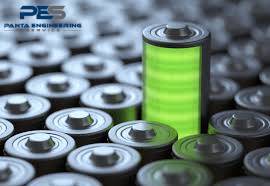Application of pulse laser cleaning technology in lithium battery cleaning
Oct 17, 2024Currently, in the new energy battery industry, laser cleaning technology has seen extensive applications in lithium battery cleaning. It not only improves cleaning efficiency and quality but also reduces production costs and environmental pollution. With ongoing technological advancements and decreasing costs, laser cleaning technology is expected to be more widely applied in lithium batteries and other industrial sectors, contributing to the promotion of green manufacturing and sustainable development.

1.Laser Cleaning Before Electrode Coating
The positive and negative electrode sheets of lithium batteries are coated with lithium battery materials on metal foils, typically aluminum or copper. Before applying the electrode materials, the metal foils need to be cleaned to ensure the adhesion of the coating and the battery's performance. Traditional wet ethanol cleaning methods can easily damage other components of the lithium battery, while laser cleaning technology effectively addresses this issue. By using pulsed lasers to directly irradiate and remove contaminants, the surface temperature of the metal foils increases, causing the pollutants to vibrate due to thermal expansion, ultimately overcoming the surface adhesion and detaching from the substrate. This achieves a damage-free cleaning process.
2.Laser Cleaning Before Battery Welding
Welding is a critical step in the production of lithium batteries. A clean and uniform surface is essential for achieving durable and successful welding and bonding. Therefore, prior to welding, surface treatment is required to remove contaminants at the weld joints. Laser cleaning technology can efficiently and precisely remove dirt and dust from areas such as the sealing pins, connection plates of the cell segments, as well as the busbars, single cell blue membranes, silicone, and coatings, preparing for the welding process and reducing the occurrence of defective welds.
3.Laser Cleaning During Battery Assembly
During the battery assembly process, to prevent safety incidents with lithium batteries, external adhesive treatment is typically required for the cell to provide insulation, prevent short circuits, and protect the circuitry from scratches. Laser cleaning of the insulation boards and end plates can clean the surfaces of the cells, roughen the surfaces, and enhance the adhesion of adhesives or coatings. Laser cleaning generates no harmful pollutants, making it an environmentally friendly cleaning method that meets current societal demands for environmental protection.
Come possiamo aiutarti?